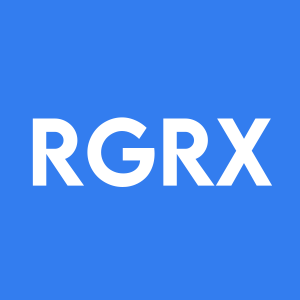Researchers Identify Thymosin Beta 4's Potential Role in Treatment of Acute Kidney Injury and the Reduction of Mortality in Patients with Sepsis
RegeneRx Biopharmaceuticals (OTCQB: RGRX) announced significant findings from a study on Thymosin Beta 4 (Tβ4), indicating its potential for diagnosing and treating acute kidney injury in sepsis patients. The study observed 191 ICU patients and found that lower Tβ4 levels correlated with increased mortality and poorer prognosis. Tβ4 could be critical in early assessment and inflammation reduction in sepsis patients. Given rising sepsis cases in the U.S., this research may enhance treatment options for a condition with high mortality rates.
- None.
- None.
Insights
Analyzing...
ROCKVILLE, Md., Oct. 6, 2021 /PRNewswire/ -- RegeneRx Biopharmaceuticals, Inc. (OTCQB: RGRX) ("RegeneRx"), a clinical-stage drug development company focused on tissue protection, repair and regeneration), today announced that a new independent research paper was published identifying Thymosin Beta 4's (Tβ4) potential in the diagnosis and treatment of acute kidney injury and reduction of mortality in patients with sepsis.
Researchers conducted a prospective observational study measuring Tβ4 blood levels in a cohort of 191 patients within 6 hours of intensive care unit (ICU) admission after diagnosis of sepsis. Based on the Tβ4 concentration, the cohort was divided into three groups representing low, medium and high levels of Tβ4 in serum samples. Patients were then followed for 28 days or until death. According to the study, 92 patients developed acute kidney injury (AKI), 29 patients died within 7 days, and 53 patients died within 28 days. After statistical analyses, the research team found that lower Tβ4 levels correlated with poorer prognosis and increased mortality risk in patients with sepsis. These correlations were statistically significant and remained significant when adjusted for demographics, co-morbidities and laboratory data.
"This study elaborates previous published research on the relationship between Tβ4 and sepsis and demonstrates the possible role of Tβ4 in quickly assessing the state of patients entering the ICU with sepsis or sepsis-like symptoms. Equally important, the study hypothesizes that administering Tβ4 quickly to patients presenting with sepsis, or other systemic infections such as Covid-19, to reduce inflammation and cell death that damages internal organs such as the kidneys may be a viable treatment option," stated Dr. Allan L. Goldstein, Chairman Emeritus of The Department of Biochemistry and Molecular Medicine at The George Washington University School of Medicine and RegeneRx's chairman and chief scientific advisor.
The study, Association between Thymosin beta-4, acute kidney injury, and mortality in patients with sepsis: An observational cohort study, was published by Zhang et. al, in International Immunopharmacology, https://doi.org/10.1016/j.intimp.2021.108167, 1 October 2021.
About Sepsis
Sepsis is a systemic inflammatory response syndrome that is caused by infection and is one of the leading causes of death in intensive care unit patients. Acute kidney injury is a series of pathophysiological changes caused by the sudden decline of renal function and the inability to exclude metabolic waste from the body, which is one of the most common complications of sepsis. In the ICU, almost
About RegeneRx Biopharmaceuticals, Inc.
RegeneRx is focused on the development of novel therapeutic peptides, including Thymosin beta 4 (Tβ4) and its constituent fragments, for tissue and organ protection, repair, and regeneration. RegeneRx currently has three drug candidates in clinical development for ophthalmic, cardiac/neuro and dermal indications, four active strategic licensing agreements in the U.S., China, and Pan Asia (Korea, Japan, and Australia, among others), and the EU, and has patents and patent applications covering its products in many countries throughout the world.
Forward-Looking Statements
Any statements in this press release that are not historical facts are forward-looking statements made under the provisions of the Private Securities Litigation Reform Act of 1995. Any forward-looking statements involve risks and uncertainties that could cause actual results to be materially different from historical results or from any future results expressed or implied by such forward-looking statements. Forward-looking statements in this press release include but are not limited to statements from us or within research published by third parties. There can be no assurance that positive results from any research or clinical trial by the Company, its collaborators, or independent parties in the U.S. or any other country will result in subsequent clinical confirmation or future value. There can also be no assurance that any of the Company's drug candidates will result in any approved products in the U.S. or any other country. Please view risks described in the Company's filings with the Securities and Exchange Commission ("SEC"), including those identified in the "Risk Factors" section of the annual report on Form 10-K for the year ended December 31, 2020, and subsequent quarterly reports filed on Form 10-Q, as well as other filings it makes with the SEC. Any forward-looking statements in this press release represent the Company's views only as of the date of this release and should not be relied upon as representing its views as of any subsequent date. The Company specifically disclaims any obligation to update this information, as a result of future events or otherwise, except as required by applicable law.
SOURCE RegeneRx Biopharmaceuticals, Inc.







